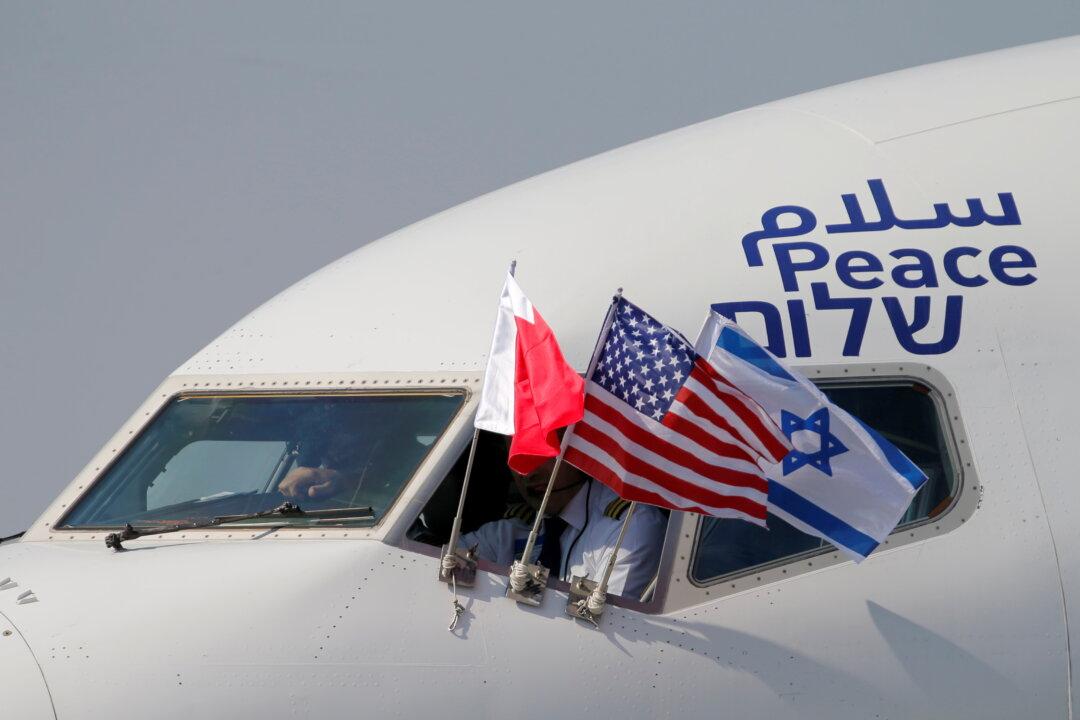JERUSALEM—A high-level delegation of American and Israeli officials landed in Bahrain on Sunday on a mission to cement an agreement to establish formal diplomatic relations between Israel and the Gulf Arab state.
U.S. Treasury Secretary Steven Mnuchin and Israel’s national security adviser, Meir Ben-Shabbat, led the delegations. The sides were expected to issue a joint statement later Sunday that would make Bahrain just the fourth Arab country to have full diplomatic relations with Israel.





